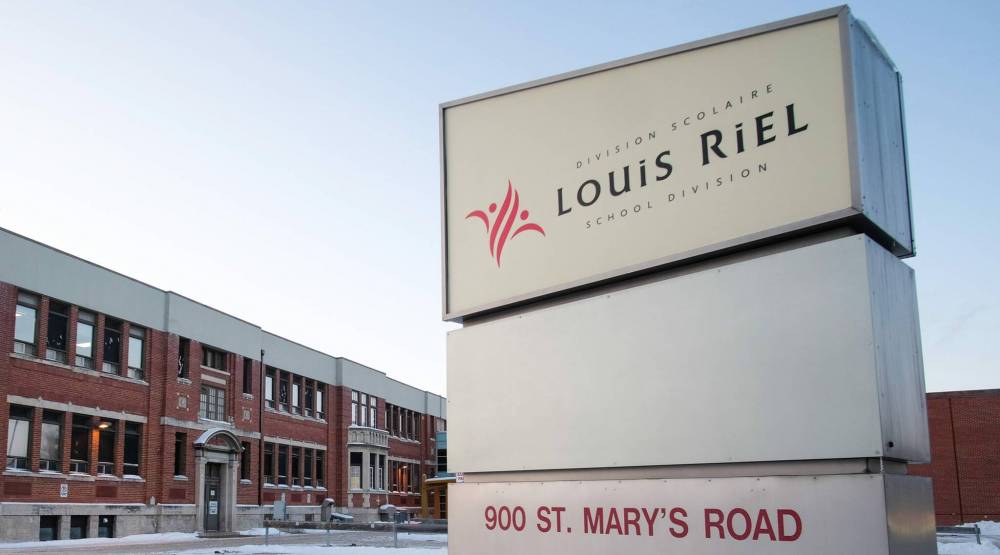Crisis centre that helps protect students from sexually explicit deepfakes says funding needed
Advertisement
Read this article for free:
or
Already have an account? Log in here »
To continue reading, please subscribe:
Monthly Digital Subscription
$0 for the first 4 weeks*
- Enjoy unlimited reading on winnipegfreepress.com
- Read the E-Edition, our digital replica newspaper
- Access News Break, our award-winning app
- Play interactive puzzles
*No charge for 4 weeks then price increases to the regular rate of $19.00 plus GST every four weeks. Offer available to new and qualified returning subscribers only. Cancel any time.
Monthly Digital Subscription
$4.75/week*
- Enjoy unlimited reading on winnipegfreepress.com
- Read the E-Edition, our digital replica newspaper
- Access News Break, our award-winning app
- Play interactive puzzles
*Billed as $19 plus GST every four weeks. Cancel any time.
To continue reading, please subscribe:
Add Free Press access to your Brandon Sun subscription for only an additional
$1 for the first 4 weeks*
*Your next subscription payment will increase by $1.00 and you will be charged $16.99 plus GST for four weeks. After four weeks, your payment will increase to $23.99 plus GST every four weeks.
Read unlimited articles for free today:
or
Already have an account? Log in here »
Manitoba educators are asking for help to protect students from sexually explicit AI images, but a crisis centre that offers classroom training says funding issues will prevent it from meeting the increasing demand.
Survivor’s Hope Crisis Centre, a non-profit that provides education and support for sexual violence survivors in the Interlake Eastern Region, teaches students and teachers about the danger of creating and spreading deepfakes — images and recordings that are generated with AI tools and appear to be real.
The centre relies on federal and provincial funding, grants and donations.

In January, the Louis Riel School Division created guidelines for teachers to address deepfakes, following a Winnipeg police investigation into deepfake images created by teenage boys. No charges were laid. (Daniel Crump / Free Press files)
Its digital consent and safety program, which launched in January, is so popular that the centre receives three requests for training every week from educators in the Interlake and Winnipeg, said executive director Gillian Schofield.
Students are taught about the risk of sexting, laws on distributing intimate images, and how to identify deepfakes and “capping” — which is when a screenshot is taken of a person’s online sexual content without their knowledge.
The program is funded by a $10,000 one-year grant from Telus, she said. That grant will run out by 2026 and government funding is needed to fill the gap.
“These kinds of harms are new territory for many people, and there’s not a lot of information, guidance or support out there,” Schofield said. “That’s why it’s imperative to keep having these conversations in schools, and in communities.”
While the training is designed for students in grades 6 to 12, Schofield said they’ve received requests to teach Grade 4 students because of rising deepfake incidents.
The eight staff members have taught the program in schools, but it’s not enough to meet demand, she said.
Each course costs roughly $350 to cover staffing, materials and travel. The centre will ask the provincial and federal governments for funding to keep it in operation after the grant runs out, and to hire an extra staff member.
Schofield wants to expand the program to include parents and develop research into AI deepfake developments so training is consistently updated.
She said staff have taught nearly 500 students in the Lord Selkirk and Sunrise School Divisions since January.
People need to be educated and aware of AI deepfakes because incidents continue to happen and it affects more than just the people directly involved if someone sees an image, Schofield said.
At a session last month, a principal alerted centre staff to a high school student who was creating and spreading sexually explicit deepfakes she said.
On May 13, a parent told Oakbank RCMP that a male student had created AI-generated nude images of 15 females, but didn’t distribute the images, RCMP said. No charges were laid, but the student received a warning.
Natasha Van Dorp, one of the people who teaches the program, said students are worried about their pictures being on social media because of deepfakes.
“They’ve grown up in (social media) and that’s what they use to communicate and show what they’re doing in their lives,” said Van Dorp. “To have that autonomy taken away from them has a big impact.”
She said it’s important for parents and students to be comfortable when talking about deepfakes and capping.
Many teachers and principals don’t know how to handle the AI-generated images when it happens in the classroom because they aren’t properly trained, she said.
Lindsay Lobb, director of operations and support services for the Canadian Centre for Child Protection, said it’s concerning how easily students can create explicit content.
She said legislation and policies often play catch-up with the rate at which technology develops, and it’s unfair to place the burden of education and supervision on parents.
Regulation is needed to protect youths and children when using AI and online devices, Lobb said. The child protection centre has its own curriculum on deepfakes and online safety on social media, she said.
In January, the Louis Riel School Division created guidelines for teachers to address deepfakes, following a Winnipeg police investigation into deepfake images created by teenage boys. No charges were laid.
After the incident, the provincial government passed legislation to include electronically altered images under its definition of intimate images.
The Non-Consensual Distribution of Intimate Images Act provides a way for victims of both fake and real revenge porn to seek damages.
In the April federal election, Prime Minister Mark Carney promised to raise the penalty for distributing intimate images without consent and make it a criminal offence to share non-consensual sexual deepfakes.
matthew.frank@freepress.mb.ca









